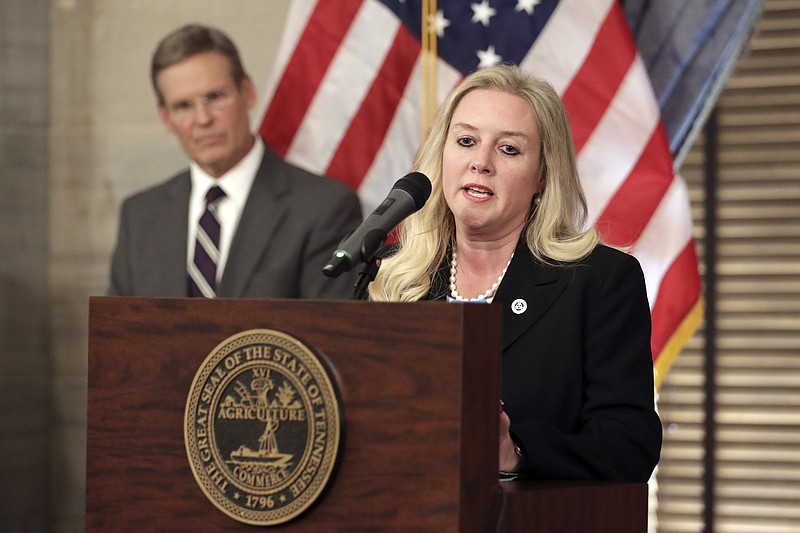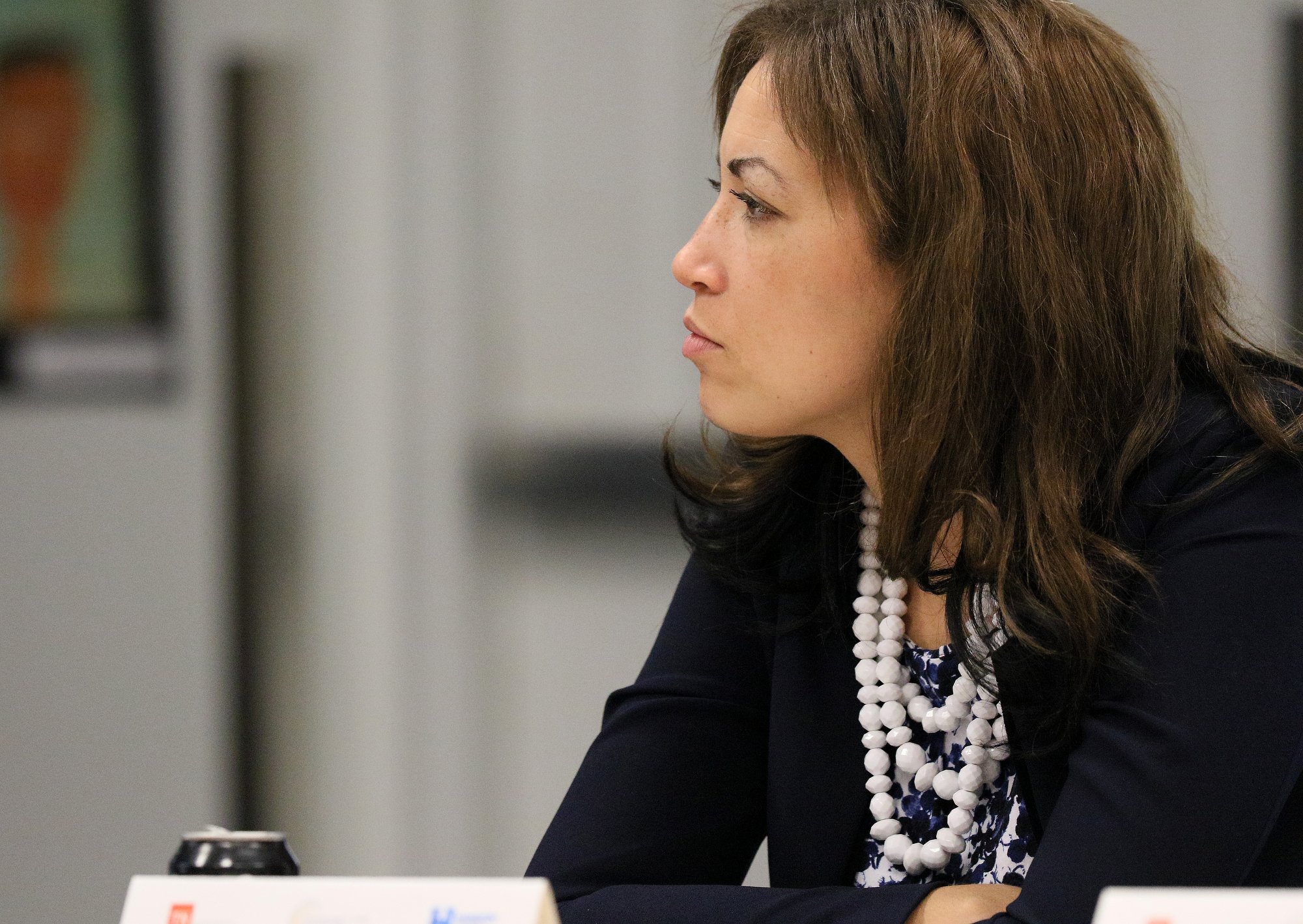An increase in pediatric respiratory illness, including but not limited to COVID-19, is straining children's hospitals across Tennessee, and the state's health and education commissioners on Friday said mask mandates for schoolchildren remain a local matter, up to school districts.
Mask requirements in some districts began cropping up this week, with Metro Nashville Public Schools and school systems in Shelby County among the larger districts requiring them for fall.
Despite political pressure not to require face masks in schools from some members of the Tennessee General Assembly, Education Commissioner Penny Schwinn said at this time local communities and school districts can implement their own policies.
"Nothing has changed in that it is a local decision and we believe that local communities and families can make the best decision for their children," Schwinn said.
Health Commissioner Dr. Lisa Piercey described the choice to require masks as a "hyperlocal decision."
Hamilton County Schools currently plans to recommend masks for students and staff when school starts Thursday but does not plan to require them.
In 2020 and early 2021, children were largely spared by many of the common viruses they typically contract at school during the winter. But those illnesses have come roaring back in children this summer - something hospitals are not used to dealing with during a season known for high amounts of trauma cases but hardly any respiratory infections - as people resume more in-person activities without face masks and other precautions that help limit the spread of many diseases.
The situation is compounded by a COVID-19 spike fueled by the delta variant of the coronavirus, which infects people faster and easier than prior strains, and nationwide workforce shortages that have left hospitals without enough staff to care for the high volume of patients.
New COVID-19 cases in children nearly doubled in a week - from 1,800 cases on July 18 to 3,200 cases on July 25 - according to Piercey, who said during a news briefing Friday that she expects that trend to continue. She pointed to recent, dramatic rises in COVID-19 cases in "peer states," such as Missouri, Arkansas, Louisiana and Florida.
"We're not having droves and droves of pediatric hospitalizations from COVID," Piercey said, "but we are having an increase just because we're having an increase in overall cases. And that little increase in COVID cases is what is putting additional strain on children's hospitals that were almost full to begin with."
The vast majority of new COVID-19 cases are occurring in unvaccinated people, which is particularly problematic for children because they represent the largest population of unvaccinated people. Children younger than 12 cannot be vaccinated, and vaccine uptake among teens is low.
"There's a widespread narrative that the delta variant preferentially infects kids, or that it makes kids sicker. That's just simply not true. I'll tell you what is true about the delta variant: it is much more contagious," Piercey said.
In response, the department of health and the department of education will begin sharing more data related to COVID-19 in children, including for pediatric hospitalizations and in schools.
Tennessee hospitals will be asked to begin entering pediatric hospital utilization data on a daily basis, just like adult hospitals. That information will be used to create an online "dashboard" of pediatric hospital availability to be published in the coming days, Piercey said.
The department of health will display the inpatient and intensive care unit data "curves" for children alongside that same data for adults. In addition, data on the current "child dashboard," which is normally updated monthly, will be updated weekly and include more detailed information.
On Thursday, there were 27 COVID-19 hospitalizations in Tennesseans age 17 and under, 10 of which were in intensive care and seven of which require mechanical ventilation to breathe, according to the new dashboard.
"We're watching it very closely because we are concerned at those pediatric numbers rising quickly. Although I can't say I'm terribly surprised, because that's what our peer states are seeing, and I don't really have any indication that it's going to be a whole lot different here," Piercey said.
Schwinn said school districts will be asked to provide health data to the department of education, and the department will provide guidance to districts on what specific information to provide early next week.
"Parents deserve to have that level of data about what's happening in their schools and classrooms so they can make the best decision for their children," Schwinn said.
Contact Elizabeth Fite at efite@timesfreepress.com or 615-757-6673. Follow her on Twitter @ecfite.
Contact Anika Chaturvedi at achaturvedi@timesfreepress.com or 423-757-6592.

